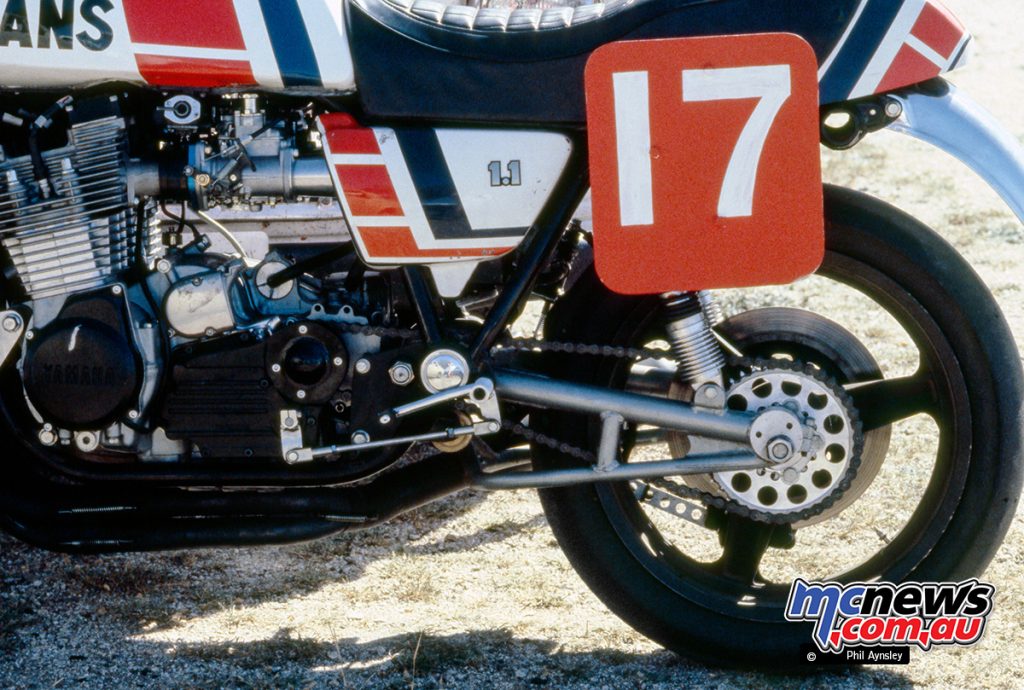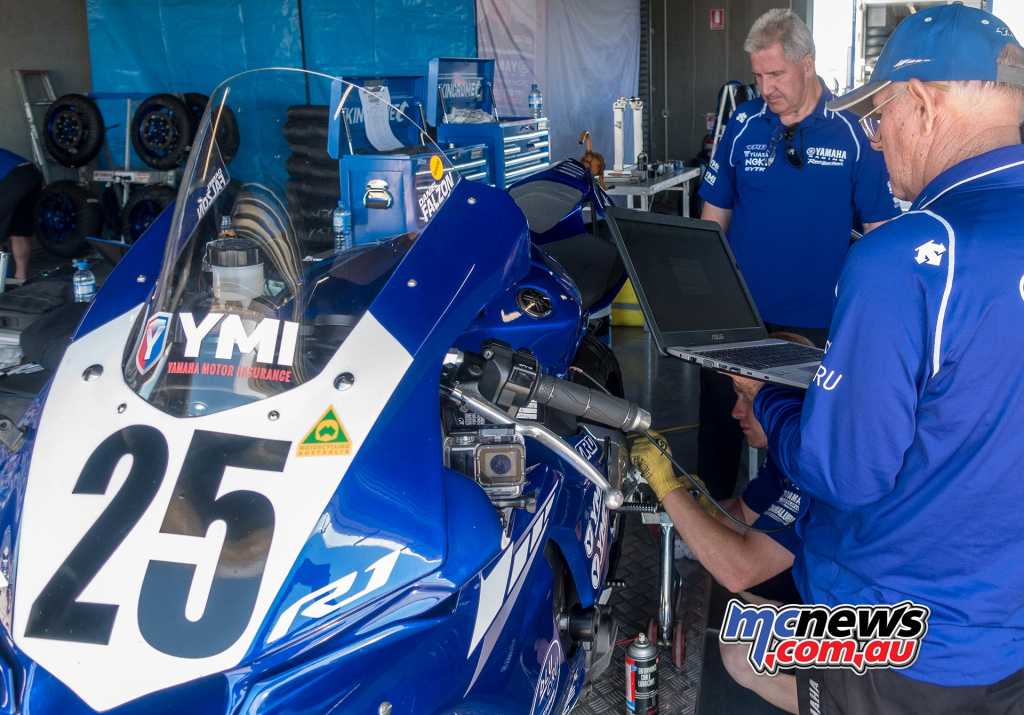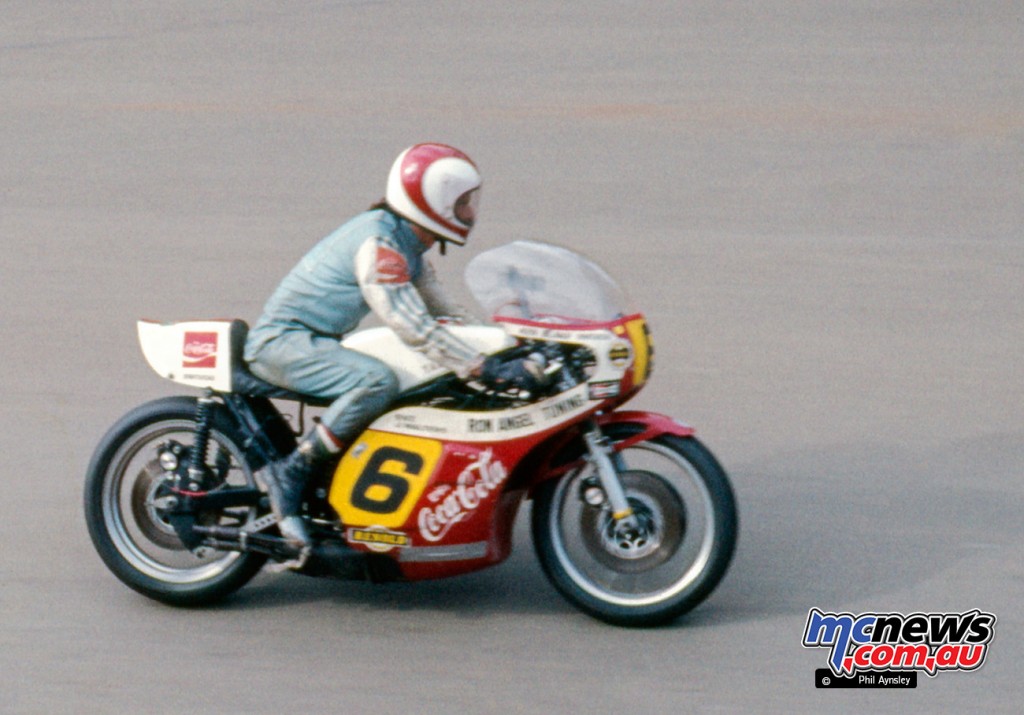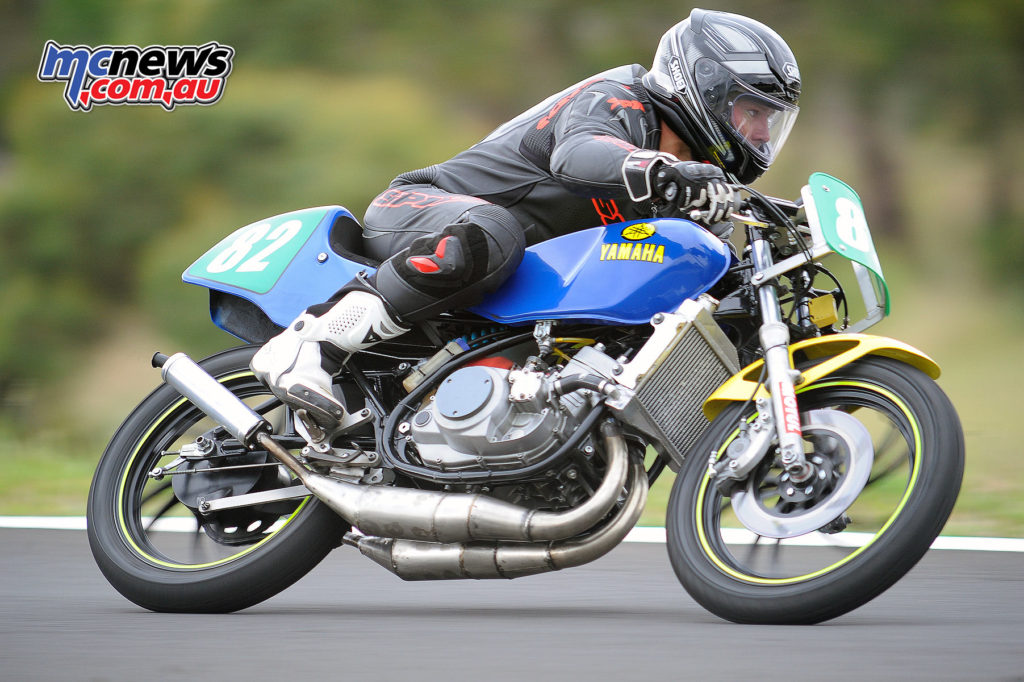Pitmans Motorcycles
By Colin Gitsham
Congratulations Pitmans Motorcycles on 80 years of consistent quality and passionate service to the motorcycling community of Australia, but in particular, South Australia.
We locals here in South Australia know the name Pitmans Motorcycles well. However, older motorcyclists—myself included—recognise just how much this legendary family has contributed to our beloved sport and pastime over the decades. From retail to wholesale (as an importer and distributor), and their active involvement in racing, Pitmans has not only stood the test of time as a successful business but has also given back generously to the motorcycling community.
As the business continued to expand, the need for larger premises became evident. This led to the construction of a new two-storey shop on Main North Road in the suburb of Prospect. Once opened, Roy Pitman, always a savvy businessman, diversified further by selling electrical products, such as vacuum cleaners, on the upper level of the store. By this time, Bonwil and Glen were deeply involved in the family business, and by the 1970s, things were progressing rapidly.
The Pitman family also had a long-standing passion for boating. Roy himself built boats as a hobby, which eventually became another facet of the business. One particularly memorable creation was a 25-foot wooden craft powered by a war surplus V8 Cadillac inboard motor.
By 1975, Pitmans added Yamaha (Mariner), marine products to their ever-growing range, diversifying across the motorcycling and marine industries.
The 1970s marked the most successful decade for Pitmans, driven by a booming demand for motorcycles. The business expanded significantly, growing to four Yamaha retail outlets across Adelaide. In addition to the original Prospect store, new locations were established in the city, St. Marys, and Valley View, along with a stand-alone marine store on Main North Road. To support their importer and distributor operations, which now extended to the Northern Territory, a store was also opened in Darwin.
As sales continued to climb and the network of dealers grew, the need for a central warehouse became essential. To meet this demand, a new facility was established in Wingfield to supply their retail outlets and other dealers across the region. This strategic expansion helped Pitmans maintain their dominance in both the motorcycling and marine industries.
From humble beginnings, Pitmans had grown to employ around 80 staff, with approximately 25 family members also involved in the business. By this time, they were supplying around 40 dealers across South Australia and the Northern Territory with various Yamaha products. At any given time, their dealer network held approximately 2,500 motorcycles in stock—an impressive feat for a family-run business. Remarkably, all of these bikes operated on a “bailment” floor plan, similar to consignment, with financing sourced directly from the Yamaha factory. It was a significant financial undertaking, but Pitmans thrived by maintaining exceptional business practices.

One of the standout aspects of Pitmans’ operations was their astonishing 97 per cent parts inventory—unmatched by any other dealer or importer in Australia, and likely the world. To put this into perspective, most businesses keep only 15 per cent of parts stock, which typically covers 80 per cent of annual sales. Yet Pitmans prioritised having nearly every part readily available, ensuring unmatched customer service and loyalty.
This commitment paid off. Even interstate dealers, their customers, and other importers would often turn to Pitmans for parts because it was faster and more reliable than ordering directly from the factory. It was just another example of how Pitmans set the standard in the industry through hard work and dedication to their customers.

Pitmans’ peak motorcycle sales continued into the early 1980s, with around 500 bikes sold each month across their South Australian and Northern Territory dealer network. Their stores frequently ranked among the top ten Yamaha dealers in Australia and often received prestigious awards from Yamaha Japan. Pitmans also led the most successful state dealer network in the country, consistently outperforming Honda in sales—an achievement unique to South Australia, as Honda typically dominated sales nationwide.
However, 1983 marked a turning point when two major events occurred that would shake the business to its core.
The first major shift came in 1983 when Yamaha Japan established its own importer and distributor operations in Australia. Out of respect for Pitmans’ remarkable achievements over the years, Yamaha initially allowed them to continue operating independently as the country’s only non-factory importer/distributor. However, the business soon faced a second, more challenging obstacle.
Toward the end of 1983, the Australian government floated the national currency, causing the dollar to devalue significantly. This devaluation made all imported goods, including motorcycles, much more expensive. As a result, bike sales slowed dramatically, putting additional strain on the business. These two events marked the beginning of a challenging period for Pitmans.

Yamaha Japan’s respect for Pitmans wasn’t based solely on their strong sales record but also on their decades of close collaboration in bike and parts development—particularly with dirt bikes designed to withstand Australia’s harsh environment. Pitmans provided more input and assistance to the factory than any other importer or distributor in Australia.
One notable example was the testing of the Yamaha XS1100, which the factory brought to South Australia for high-speed endurance trials. These tests involved sustained riding at over 180 km/h for 650 kilometres a day. Even NGK, the spark plug manufacturer, heeded Pitmans’ advice, using their feedback to develop more durable and reliable spark plugs. This hands-on involvement in product refinement further solidified Pitmans’ reputation and partnership with Yamaha.

Due to the immense respect Pitmans had earned at the factory level, it wasn’t until 1994 that Yamaha Australia finally took over the distribution rights for South Australia and the Northern Territory, marking the end of an era. What made this transition truly remarkable and unique was that Yamaha actually compensated the Pitman family for these rights—something they did not do for any other importer or distributor in Australia.
This gesture was a testament to the deep regard Yamaha Japan had for Pitmans and their contributions over the decades. It’s also worth noting that, at the time, Yamaha’s entire annual production for Australia amounted to just a single day’s output from their factories. That speaks volumes about the significance of Pitmans’ achievements and the legacy they left behind.
Another key factor behind the respect Pitmans earned from Yamaha was their significant involvement in racing, both domestically and internationally. The family’s passion for motorcycles naturally drew them into the racing scene early on, using it as a powerful way to promote both the Yamaha brand and their business. As mentioned earlier, they provided crucial support to both well-known and lesser-known riders, offering opportunities in various ways.
In the 1960s, Pitmans helped promising young racers by selling competition bikes like the TD1C at cost. Some riders even received free parts, servicing, tuning advice, and other support. As Yamaha racing bikes became increasingly successful on the track—both on and off-road—throughout the 1970s, Pitmans formed their own road racing team to compete in local and national events. With this effort came even greater success, driving sales in their showrooms.
By the late 1970s, Pitmans had reached the pinnacle of domestic road racing, with their achievements garnering attention from Yamaha Japan. Their success led to direct communication with the factory, where they provided valuable feedback and input on further development of Yamaha’s racing bikes. This strong collaboration between Pitmans and the factory helped solidify their reputation as an integral part of Yamaha’s racing legacy.
Two of Roy’s grandsons, Dean and Malcolm, developed a strong passion for road racing in the early 1970s and were actively involved until 1983. However, with the devaluation of the Australian dollar causing a slowdown in the motorcycle business, the focus shifted to off-road racing, particularly the Mr. Motocross series, which was more cost-effective. Dean and Malcolm continued their off-road involvement throughout the 1980s.
By the end of the decade, Malcolm transitioned to Yamaha Australia, where he managed their Superbike team. His career then took him overseas, managing Yamaha’s racing operations in Malaysia in 1995, followed by a move to Europe in 1997, and eventually to MotoGP in 1998. Meanwhile, Dean stayed local, supporting his nephew Doug, who competed in Production and Superbike racing from 1989 onward with some success. Doug’s twin brother, Brenton, took on the role of mechanic, keeping the tradition of family involvement alive. As always, racing remained very much a family affair for the Pitmans.
As the 1990s progressed and motorcycle sales continued to decline, tough economic decisions were made to scale back and streamline Pitmans’ operations, especially since they were no longer acting as an importer/distributor. Retail outlets were gradually closed, and the business was centralised into a single, large premises on Main North Road in Blair Athol, which housed both motorcycle and marine operations under one roof.
Pitmans continued trading as usual until 2000, when BMW parted ways with the business. In 2004, the marine division was sold to Pacific Marine, leaving the business focussed on Yamaha motorcycles, power equipment, and accessories. This led to a move into a smaller neighboring premises.
By 2007, some family members decided to exit the business, resulting in twin brothers Brenton and Doug buying out their shares. However, in 2013, Yamaha introduced a new business model that didn’t align with the brothers’ operations, leading to the Yamaha brand being temporarily removed from the store.

After several years, a renewed agreement was reached in 2021, bringing Yamaha back to its rightful place alongside the Pitmans name. Today, the Pitmans legacy continues, with Yamaha once again a central part of their business, honouring decades of tradition.
It’s been a long and remarkable journey from humble beginnings, but there is no doubt that the Pitman family has played an integral role in the history of motorcycling in South Australia, the Northern Territory, and Australia as a whole—particularly in shaping Yamaha’s legacy in the country. Their dedication, innovation, and passion have left an indelible mark on the industry.
So, once again, congratulations and happy 80th birthday, Pitmans. Your history is a story of success and hard work, and your contributions are a testament to a job exceptionally well done. You have every reason to be proud of this incredible legacy!












